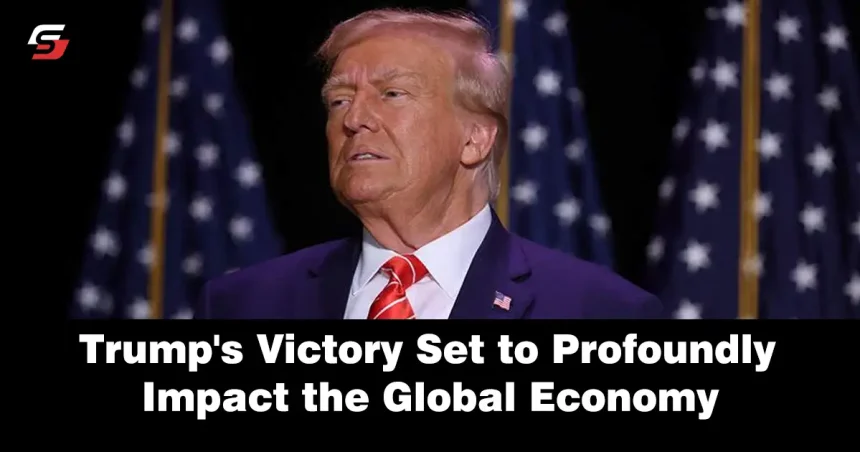Donald Trump’s presidency may significantly impact global economies with tariffs, increased U.S. debt, deregulation, trade, and NATO shifts affecting inflation and stability worldwide.
As a U.S. president Donald Trump is poised to influence the global economy swiftly and profoundly. Should he implement even part of his agenda—ranging from deregulation, high import tariffs, increased oil drilling, and calls for greater NATO contributions—nations worldwide will feel theinfkuence on government finances, economic growth, inflation and interest rates.
Trump also has a Republican-controlled Congress, making it uncomplicated to legislate his plans, securing over 270 Electoral College votes. His fiscal proposals could extend the U.S. deficit and destabilize global markets, economists worry. Affecting global financial stability Erik Nielsen from UniCredit warns that Trump’s policies pose a grave threat to the U.S. Treasury market.
Trump’s proposed tariffs which icomprised a universal 10% on imports and a 60% tariff on Chinese goods, are expected to reduce global trade, slow down economic growth for exporting nations, and increase inflation in the U.S. Impacting global interest rates, The Federal Reserve may react with tighter monetary policies. Further trade barriers could risk the 3.2% global GDP growth forecast with the International Monetary Fund already viewing weak global growth.
If Trump’s spending plans move forward, U.S. debt could expand by $7.75 trillion by 2035, these tariffs would likely raise U.S. consumer prices. Universal tariffs would seriously damage the global economy, Rogier Quaedvlieg from ABN Amro notes.
Mostly reliant on U.S. dollar funding, emerging markets could face costlier borrowing and reduced exports. Beijing may seek alternative markets, rushing other regions with exports, particularly in Europe if tariffs heavily target China. Anticipating weakened business sentiment, Central banks might respond by cutting rates.
Global retaliation against U.S. tariffs could further influence trade, while a rising dollar would strain emerging markets. Facing border challenges, Mexico, is at particular risk, while Brazil might gain from extended trade with China.
Straining budgets already near 90% debt-to-GDP levels, for Europe, potential cuts in U.S. NATO support amid Russia’s aggression would necessitate enhanced defense spending. U.S. deregulation, meanwhile, could pose a threat to international financial regulations like Basel III, aimed at stabilizing banks.


